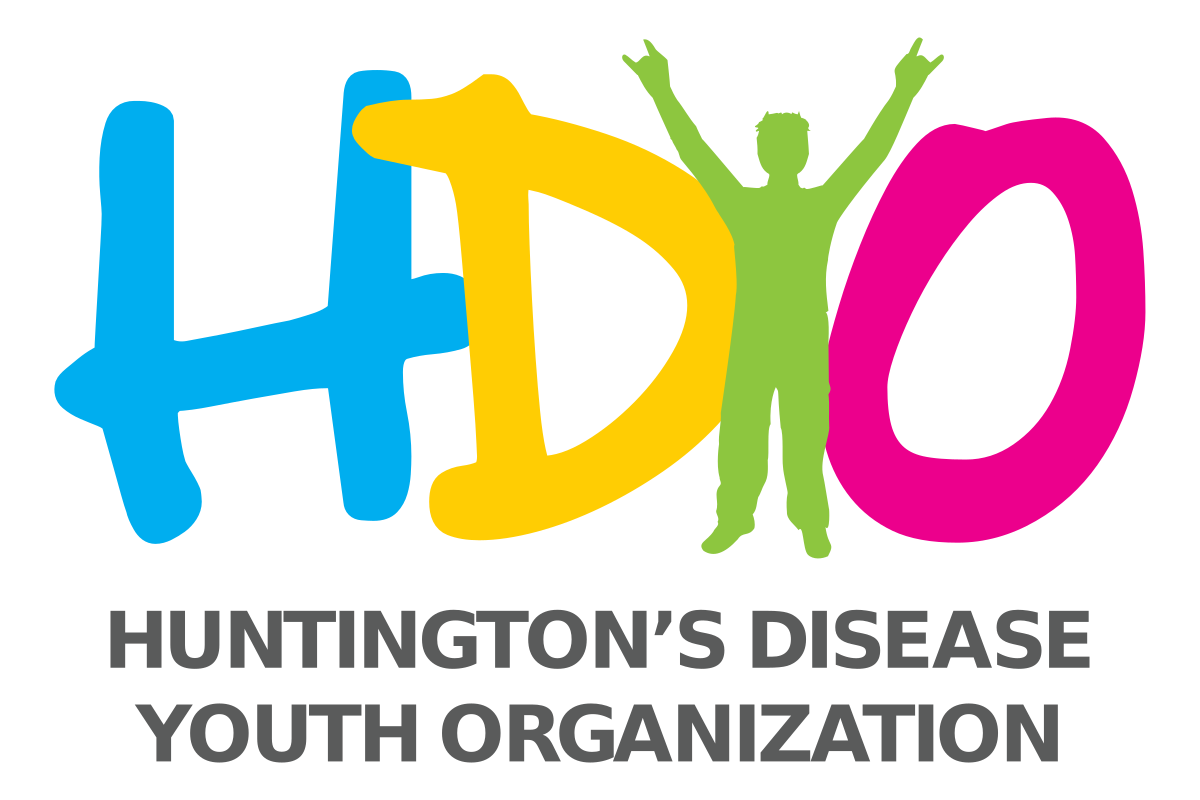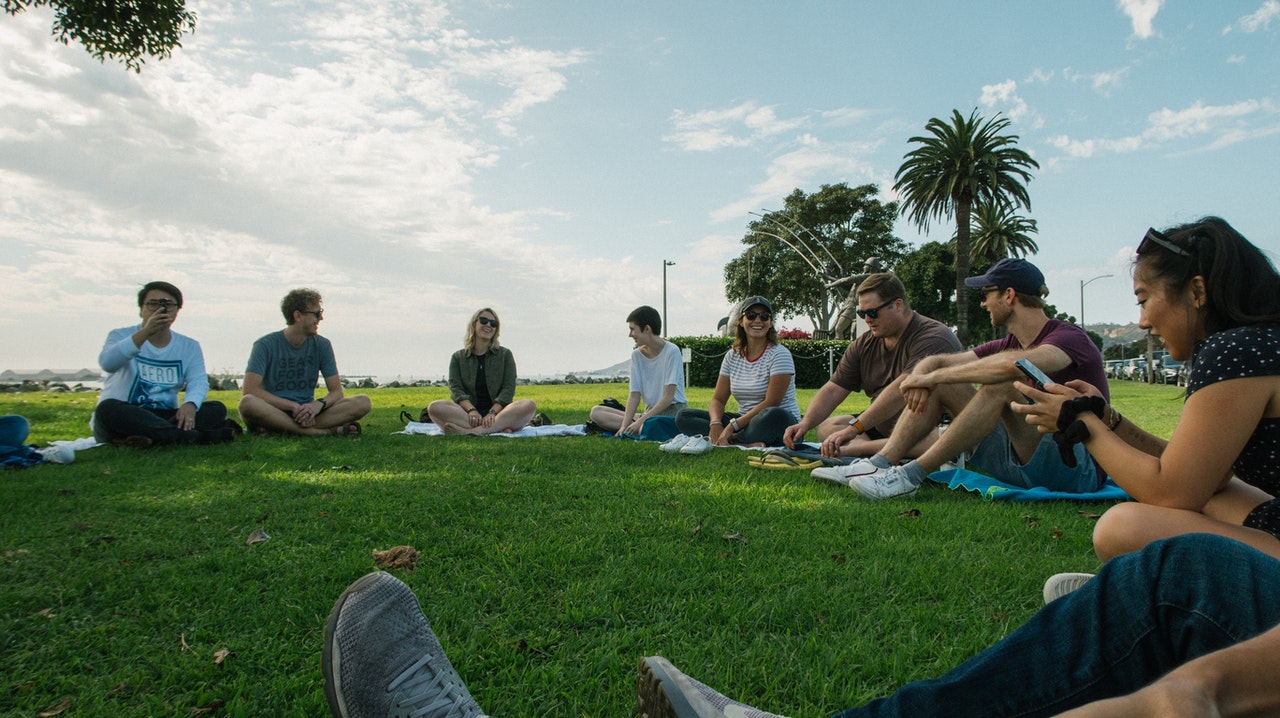Talking About HD with Family and Friends
November 23, 2021

HDYO has more information about HD available for young people, parents and professionals on our site:
www.hdyo.org
Updated in 2025 by Education and Research Committees
Talking about Huntington’s disease (HD) with family and friends can be difficult. There are many reasons why we may find talking about HD challenging, which we will explore in this section!
Why should we talk about HD?

Many young people wonder why they should talk about HD at all. The conversation could include sensitive and personal feelings about how HD impacts your life, or the life of your loved ones, so you may find that it is a difficult subject to discuss with others. It’s understandable that people could be hesitant to talk about HD so freely.
While these conversations may be difficult, they can also be a great way to connect with others and find support. Young people in HD families experience many challenges. Being able to share these challenges and talk to someone about how you are feeling, can be incredibly helpful in coping with the situation.
“I tend not to talk to my parents, but I do talk to my boyfriend and friends. You most definitely need to talk about things, bottling it up doesn't help at all.” Amy
Many people find that close family and friends are the best source of support. Of course, HDYO is here to listen and answer any questions you may have too. But we would like you to have people nearby in your life who you know you can talk to as well.
What may make it difficult for you to talk about HD with family and friends?
While each individual will have a unique situation, the following are examples of why it can be challenging to discuss HD.
1. Finding it stressful to talk to family and friends

The most obvious reason why you may find it difficult to talk to family and friends about HD, is because it causes you a lot of stress. You may worry about what to tell people, how they will react, if they will understand what you are feeling and whether your relationship with them will change if you talk about HD. You might even be afraid that you will upset someone if you mention HD – particularly with family members. These are all valid and very common concerns for young people.
2. HD is not discussed in your home
You may be one of the many young people in a family where HD is not discussed openly at home, despite HD being a big part of your life. Many families find it difficult to talk openly about HD, and when it isn’t discussed at all, it can be challenging to ask questions or raise concerns about HD with your family.
“My family don't really talk about HD.” Vicky
3. My family feel guilty that I have to face HD
It can also be difficult to talk about HD if some family members feel an overwhelming sense of guilt. For example, they could feel responsible that you and other family members may have to face the challenges HD brings with it in life.
“It's difficult talking to my mom (who has HD) as she feels completely guilty, and all she ever said when I had my result was sorry.” Jason
It can be difficult for family members to cope with feelings of guilt. In this situation, it may help to discuss their feelings, let them know it is not their fault and express that it can be better to face HD together. Once their feelings of guilt are addressed, they may become more open to discussing HD along with your questions or concerns.
4. My family member denies that they have HD
In some families, the person who is affected by HD may be in denial that they have the condition.
“The hardest thing I have experienced so far is confronting my mum about her behaviour and denial that she is demonstrating signs and symptoms. She even lies to us about her doctor’s appointments. I have confronted her about this but we end up arguing. I feel as though I cannot talk to her about HD at all.” Julie
While some people with HD may appear to be in denial, they could be experiencing a symptom called anosognosia. People with anosognosia are unaware of their own illness so it can be difficult to reason with them. While this won’t help you deal with your own questions and concerns about HD, it may help you understand why someone with HD behaves as if they don’t have the condition.
5. You know about HD, but your family don’t know you know…
It is not uncommon for a young person to find themselves in a situation where they know someone in their family has HD, but their family hasn’t shared the diagnosis with them yet. You may have overheard someone talking about HD, seen an HD appointment reminder, or researched some concerning symptoms yourself and figured out what was wrong. Either way you now find yourself in a situation where you know something important that the family has tried to keep from you.
If you are ready to discuss your concerns with your family members, you may find some of the tips below helpful. You can also speak to HDYO first and we can help you identify the best approach.
HDYO’s tips for talking about HD with family and friends
Here are some of our general tips for talking to family and friends about HD.

- You are in control With friends and family, you can decide who you are going to speak with about HD. You don’t have to tell everybody, just those that you trust.
- Think about what could happen Before you tell someone about HD in your life, think about how that person may react. Will they listen to you, will they understand, and can you trust them? If you’re not sure how someone will react, you may consider first discussing HD with someone who you know will be supportive.
- Find the right time to talk to the person When you are ready to discuss HD with a family member or friend, consider the timing of the conversation first. In general, it may be best to find a moment when you can both have a private conversation free of distractions.
- What are you hoping will happen? Before speaking with your family member or friend, make sure you have clear goals around what you are trying to achieve through the conversation.
- Practice makes perfect Some people may find it helpful to rehearse or role play the conversation before meeting with their friend or family member. You could practice in front of a mirror if that helps or contact HDYO for support.
- Know your stuff Be prepared to answer questions about HD. If your friends are unfamiliar with HD, sharing information will allow them to better understand HD’s impact on your life and ways they can support you. HDYO has some great educational materials to help explain HD (including this what is HD? brochure you can order for free). what is HD? brochure you can order for free). It’s easy to read, bright and should help your friends get a basic understanding of HD quickly!
- Plan your approach You don’t have to speak with someone about HD. There are many ways to communicate and you can think about which way would be best for you. For example, perhaps the person you want to tell does not live close by, so talking to them face-to-face is not an option. Why not think about writing them a letter, email or text?
Young people from other families affected by Huntington’s disease
It may be that you don’t want to talk about HD with any of your friends or family. If that’s the case then it’s perfectly ok. However, having people to talk to about HD and how it affects you can be very comforting, so you may find it helpful to talk to other young people who come from families affected by HD. These young people may share similar experiences and worries with you. It can often be a relief to talk to people who can understand what you are going through, without having to explain anything about the disease.
‘I don’t talk to my friends about Huntington’s disease because I just can’t bring myself to do it. But being able to talk with others a similar age to me who are going through the same thing is a big help to me.’ Michael

Talking to young people from families like your own can really be a great support system for all involved. HDYO is always keen to connect young people from families impacted by Huntington’s disease and we have a page on Facebook and Facebook Group, where you can interact with others in similar situations to yourself. It is also worth contacting your national Huntington’s disease organisation as they may be able to provide contact with other young people in your area, or they may have youth camps and events for young people to meet at.
Contact us
We encourage you to reach out to HDYO anytime or take a look at our Ambassadors scheme.



